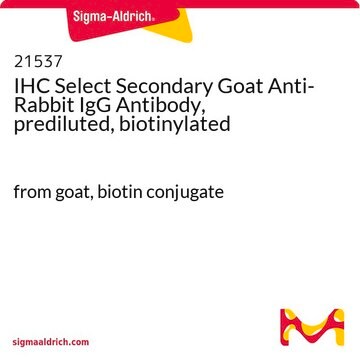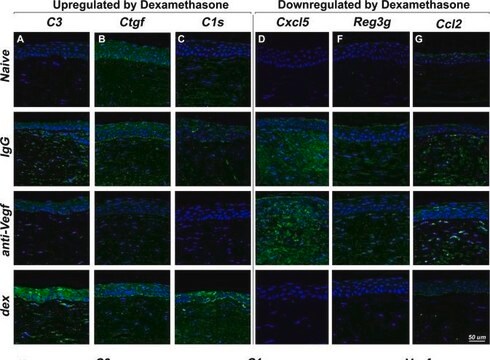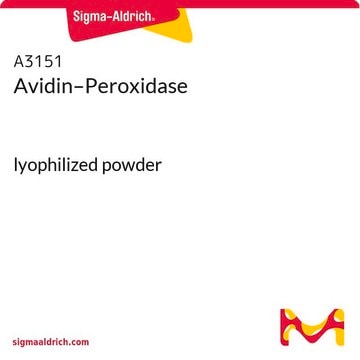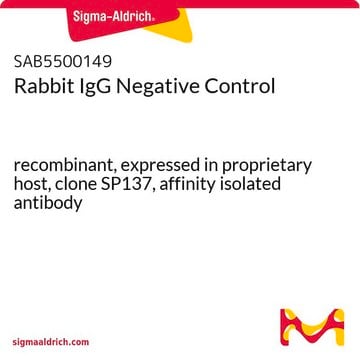General description
IgG (immunoglobulin G) is found in blood and extracellular fluids and is enriched in mother′s milk. IgG (immunoglobulin G) consists of four subclasses: IgG1, IgG2, IgG3 and IgG4. The IgG structure possesses four polypeptide chains containing two identical γ heavy (H) chains and two identical κ or λ light (L) chains of 50kDa and 25kDa respectively. The chains are interlinked with a disulfide bond. Both the L and the H chains consist of a variable domain at the N-terminal. The C-terminal bears′ constant domains: three in H chain with a hinge region and one in the L chain. The variable region of IgG antibody is specific to antigens and is highly conserved.Antibody−biotin conjugates are affinity purified antibodies labeled with biotin for detection using anti-biotin antibody or streptavidin conjugates.
Biochem/physiol Actions
IgG (immunoglobulin G) antibody provides protection from infections caused by bacteria, fungi and viruses. Maternal IgG is transferred to fetus through the placenta, that is vital for immune defense of the neonate against infections. IgG antibody has its function similar to IgM antibody in complement system activation. IgG participates in hypersensitivity type II and type III. It helps in opsonization, complement fixation and antibody dependent cell mediated cytotoxicity.
Legal Information
This product is distributed by Sigma-Aldrich Co. under the authorization of Biotium, Inc. This product is covered by one or more US patents and corresponding patent claims outside the US patents or pending applications owned or licensed by Biotium, Inc. including without limitation: 12/334,387; 12/607,915; 12/699,778; 12/850,578; 61/454,484. In consideration of the purchase price paid by the buyer, the buyer is hereby granted a limited, non-exclusive, non-transferable license to use only the purchased amount of the product solely for the buyer′s own internal research in a manner consistent with the accompanying product literature. Except as expressly granted herein, the sale of this product does not grant to or convey upon the buyer any license, expressly, by implication or estoppel, under any patent right or other intellectual property right of Biotium, Inc. Buyer shall not resell or transfer this product to any third party, or use the product for any commercial purposes, including without limitation, any diagnostic, therapeutic or prophylactic uses. This product is for research use only. Any other uses, including diagnostic uses, require a separate license from Biotium, Inc. For information on purchasing a license to use this product for purposes other than research, contact Biotium, Inc., 3159 Corporate Place, Hayward, CA 94545, Tel: (510) 265-1027. Fax: (510) 265-1352. Email: btinfo@biotium.com.
Disclaimer
Unless otherwise stated in our catalog or other company documentation accompanying the product(s), our products are intended for research use only and are not to be used for any other purpose, which includes but is not limited to, unauthorized commercial uses, in vitro diagnostic uses, ex vivo or in vivo therapeutic uses or any type of consumption or application to humans or animals.









